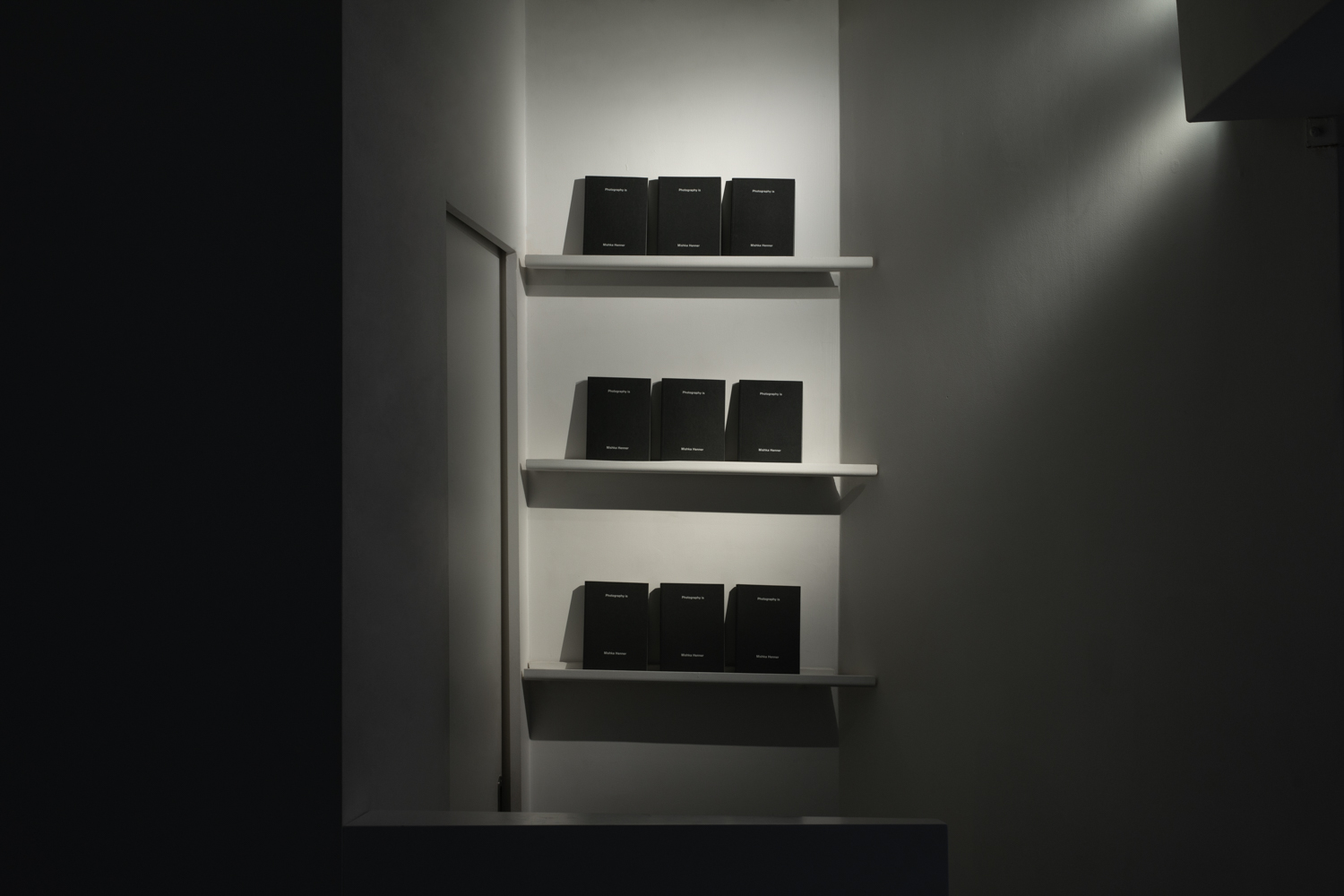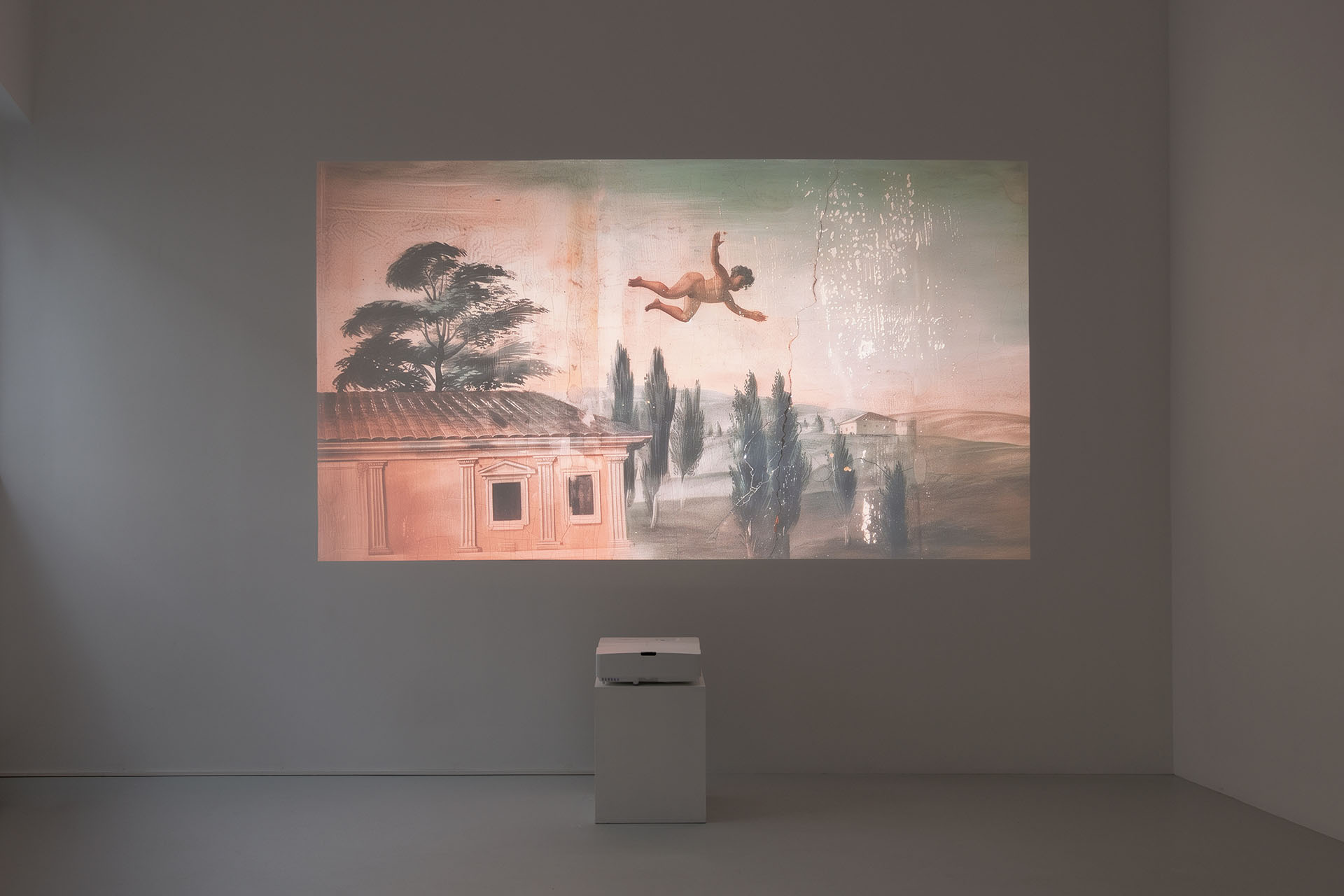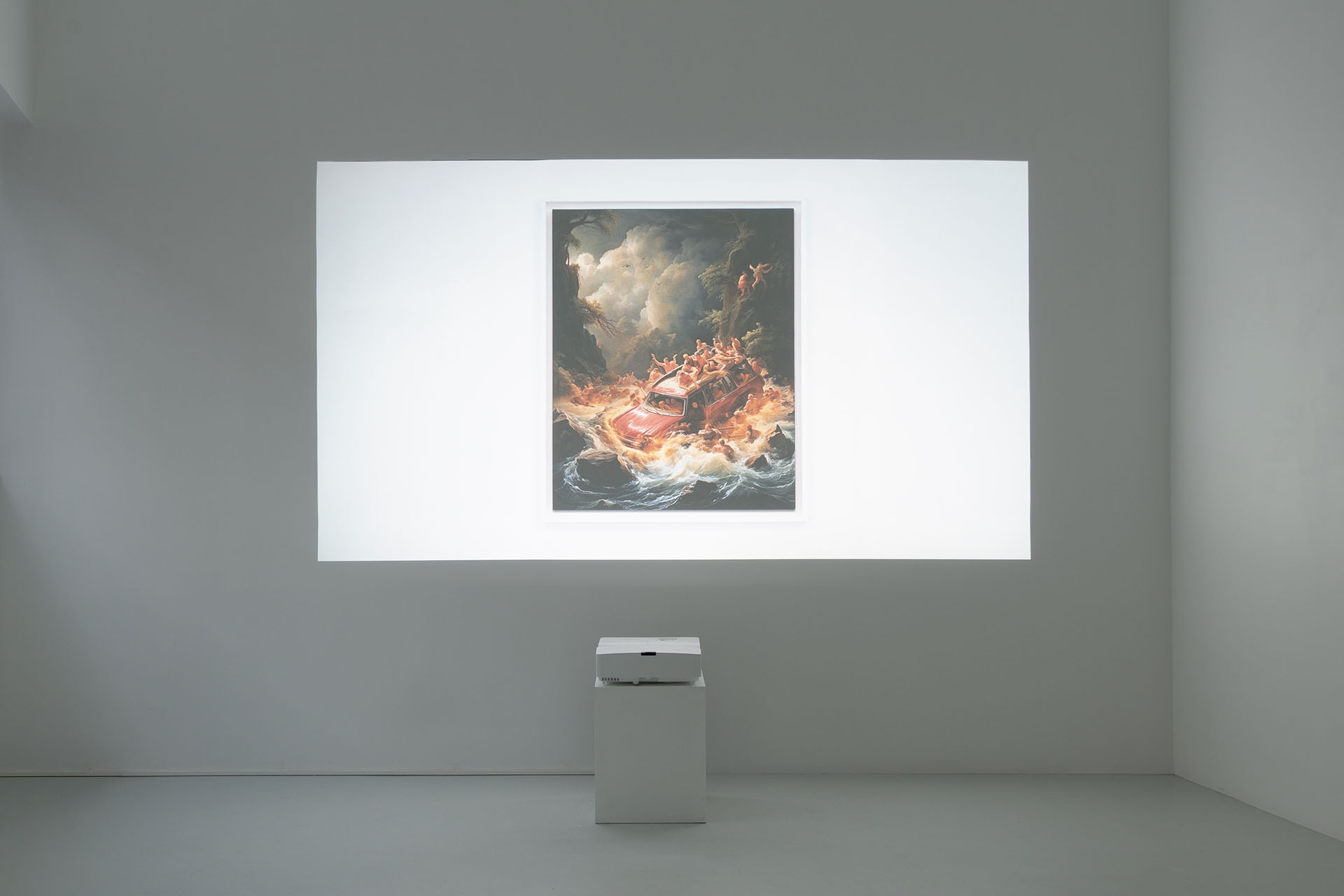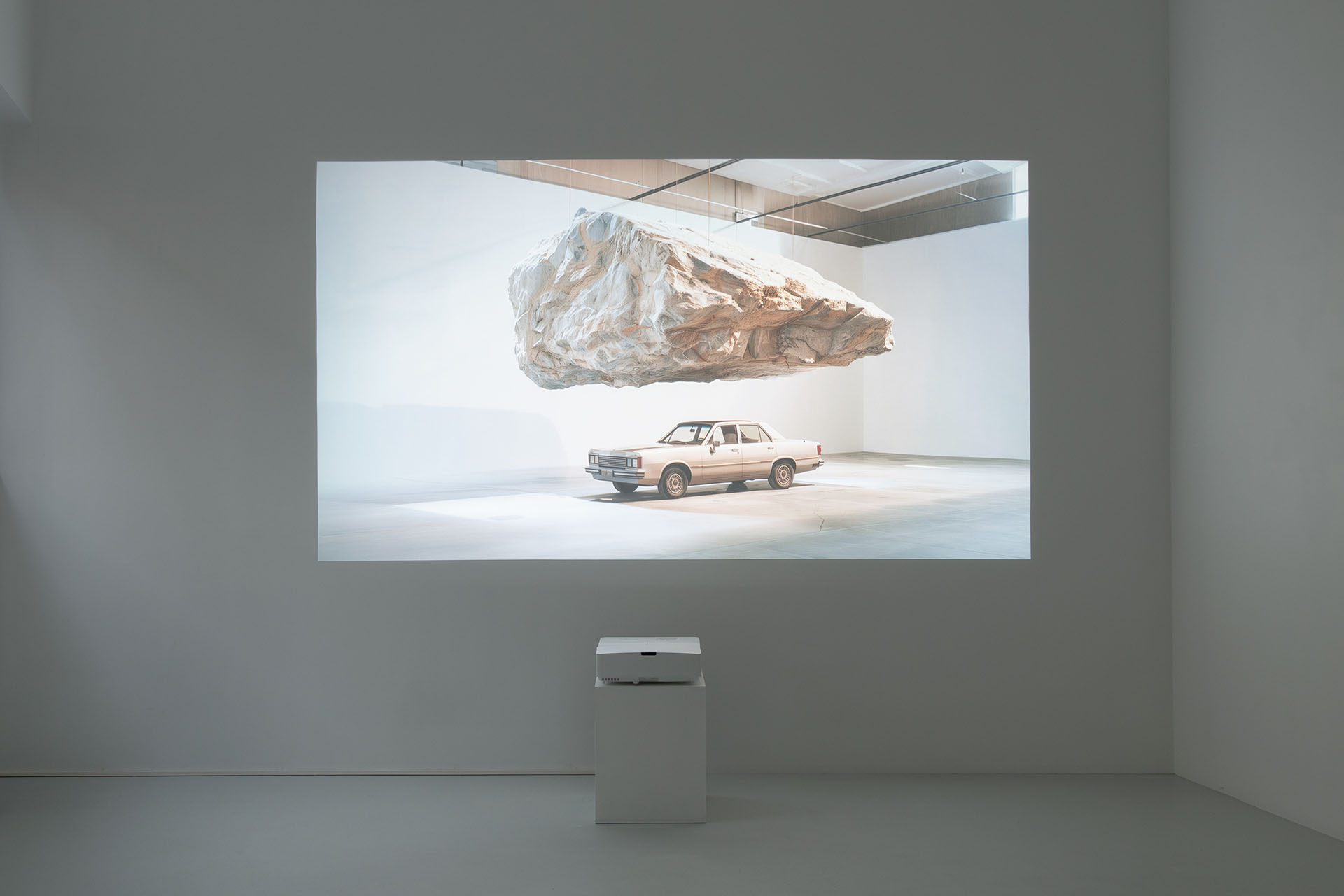Words and Pictures
2024
Galerie Jean-Kenta Gauthier Odéon & Vaugirard
15 June - 27 July 2024
5 rue de l’Ancienne-Comédie 75006 Paris
4 rue de la Procession 75015 Paris
15 June - 27 July 2024
5 rue de l’Ancienne-Comédie 75006 Paris
4 rue de la Procession 75015 Paris




Views of Words and Pictures at JKG Vaugirard
Words and Pictures continues Mishka Henner's exploration of how photography exists in the 21st century and how it has shaped our perceptions of art and its conventions. The artist’s third solo exhibition with the gallery takes place across both the Vaugirard and Odéon locations.
In 2010, Mishka Henner published Photography Is; a manifesto containing more than 3,500 unique sentences each beginning with the words “Photography is” and isolated from the context in which they originally appeared. Scraped from blogs, magazines, academic text books, press releases, technical manuals, and every other publishing platform aggregated by the search engine, the work was an audacious attempt to expand the discourse of photography beyond canonical and established definitions, and to define an entire visual genre solely through words.

Copies of the new edition of Photography Is in the Odeon space
Photography is a Durational Reading is a new immersive installation presented at JKG Odéon, in which the gallery is transformed into a dark room broadcasting a 7-hour long reading of Henner’s entire text. The material is sourced from a 7-hour long Youtube performance in which an American photographer named Michael David Murphy read Henner’s book live during a US photo festival in 2020. Photography is a Durational Reading is therefore a re-appropriation of an appropriated project, reminding us that circulation is a quality central to photography. Offered to visitors as a collective experience, it is a meditative work on the state of photography in the 21th century, in which photographs are entirely absent.
In 2024, an updated edition of Henner’s Photography Is was published by Gato Negro Ediciones (Mexico City).




JKG Vaugirard features for the first time the installation Words and Pictures (2024) comprising a wall text, business cards, and a projection of 79 images. Words and Pictures is a play on art conventions. While the wall text respects all art conventions by presenting the artist’s name, the exhibition title and dates, its main content consists of a Lorem ipsum placeholder text. The Lorem ipsum reflects the historical telescoping effect present in many of Henner's works: a faux-text with its origins in 45 BC, invented in the 1960s for the needs of designers using early desktop publishing software. For each presentation of the work, the wall text must be updated using the exhibition space’s visual identity (font type and size) as well as including the new exhibition dates.
The formal qualities of the wall text reflect Henner’s interest in the frames imposed on art discourses that are also applied to artists themselves. The business card, for example, contains only the artist’s name and the title, “mid-career artist”, as though the artist, like his work, is forever labelled and categorised.
The third element of the installation is a slideshow projection of 79 artworks consisting of photographs created from sculptures, paintings and texts, as well as sculptures, installations and paintings created from photographs. In the age of generative processes, these works were created by Henner using text prompts mining an almost infinite library of contemporary and historical imagery.
In 1844, William Henry Fox Talbot, one of the inventors of photography, suggested that photography was the most effective way of reproducing artworks, namely sculptures, drawings, lithographs, architecture and books. Observing that since the 19th century, our knowledge of art history is largely dependent on our knowledge of photographic reproductions of artworks, Mishka Henner’s projected images play with the iconographic conventions and typologies of art and artworks: sculptures are often presented on immaculate plinths with perfect studio lighting, installations are monumental and presented in vast white cubes, and the works on canvas or paper are all perfectly framed against neutral walls, begging the question whether art galleries themselves have in fact become large photographic studios rather than spaces for contemplation. Behind this quest for formalism, the resulting artworks projected onto the wall often contain motifs that echo those in Henner's work: our relationship to the world, to technology, and the consequences of our own activities. Drawn from newspapers, museum archives, product photographs, and even the artist’s own personal photo albums, the works echo the vast aggregation of Photography Is, only this time the results are entirely visual.
— Jean-Kenta Gauthier, June 2024
In conversation with Clément Chéroux and Jean-Kenta Gauthier, June 2024